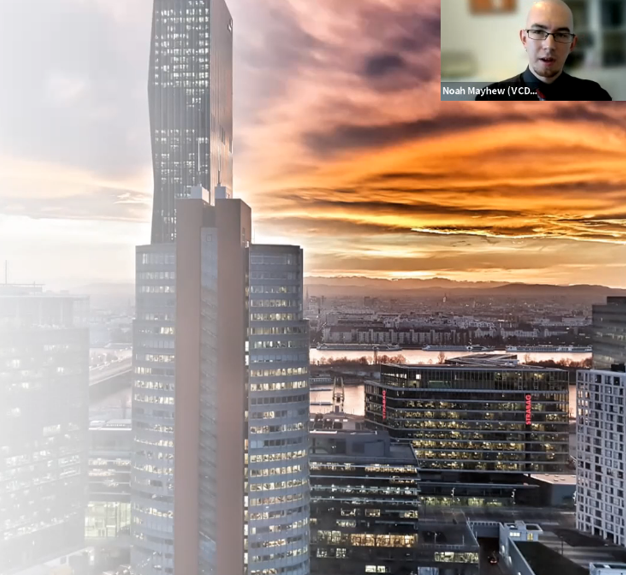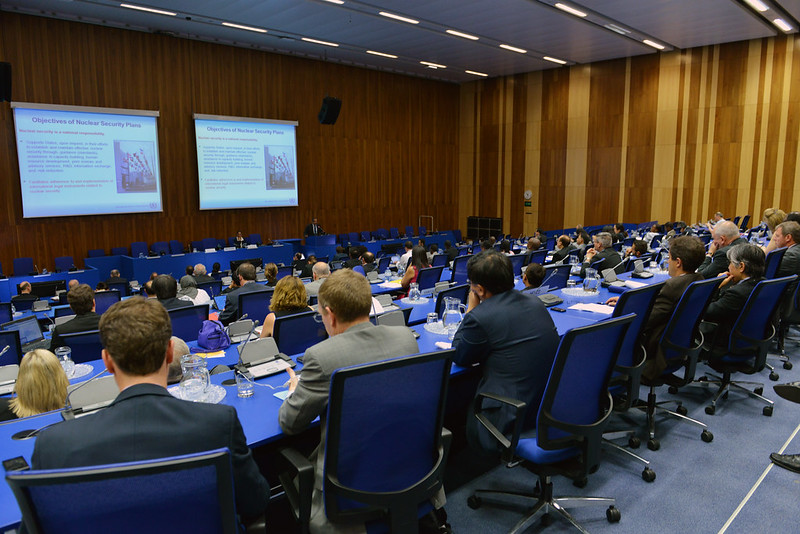
The Amendment to the Convention on the Physical Protection of Nuclear Material (CPPNM) closes important gaps in the physical protection of nuclear material and facilities as well as introduces other nuclear security-related measures. While in force since 2016, the Amendment is not yet universally applied, as it only has 124 States Parties, plus Euratom.
Key challenges to its universalisation include: (1) inadequate knowledge among non-adherent States about Amendment provisions and the domestic changes they entail, (2) lack of internal resources for effective implementation, and (3) low awareness about international tools and assistance available for implementation.
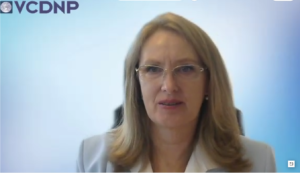
On 9-10 March 2021, the VCDNP held a virtual workshop to discuss these issues and provide a platform to share national experiences in the implementation of the Amendment. The workshop also provided important updates on the upcoming Review Conference of Parties to the Amendment scheduled to take place in March 2022. Over 100 participants from national governments and international organisations took part in the workshop. They represented more than 50 States, including fourteen States not yet party to the Amendment. Distinguished speakers at the workshop included Director General of the International Atomic Energy Agency (IAEA) Rafael Mariano Grossi, Permanent Representative of Switzerland Ambassador Benno Laggner, Permanent Representative of Paraguay Ambassador Juan Francisco Facetti, Permanent Representative of Thailand Ambassador Morakot Sriswasdi, Director of the Division of Nuclear Security of the IAEA Elena Buglova, Head of the CBRN Terrorism Prevention Programme at the United Nations Office on Drugs and Crime (UNODC) Maria Lorenzo Sobrado, Senior Advisor to the Resident Representative of Hungary to the IAEA Vilmos Cserveny, and Director General of the Australian Safeguards and Non‑Proliferation Office Robert Floyd. Representatives from national regulators, experts from the IAEA, national governments, and think tanks also spoke at the event.
The workshop, which took place under the Chatham House Rule, started from the premise that the CPPNM and its Amendment are fundamental pieces of the international nuclear security framework and the only legally binding agreements on physical protection of nuclear material and facilities. The universalisation of the Amendment is thus of utmost importance to further enhance nuclear security worldwide.
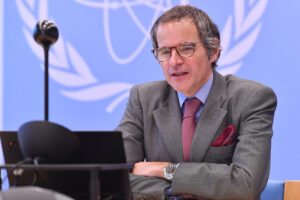
The workshop included two sessions focused on the exchange of States Parties’ experiences in the implementation of the Amendment. One session was devoted to the experiences of States with no nuclear power plants featuring speakers from Paraguay, Saint Kitts and Nevis, and Thailand. The next session included States with nuclear power programmes, in which representatives from Argentina, Finland and the United Arab Emirates shared their respective experiences. Breakout group discussions allowed for a more detailed exchange on challenges, lessons learned and best practices in the implementation of the Amendment.
The most cited challenge was the need for continuous and persistent work in raising awareness of and ensuring broad collaboration among all governmental bodies responsible for the Amendment implementation. This holds particularly true for small countries without nuclear material. Participants also mentioned the establishment of coordination mechanisms at the national level as essential in that regard. Another common challenge relates to the introduction and adoption of new legislation and regulations, especially as the parliamentary process is “time consuming” and some States lack adequate human resources and expertise for these purposes. Workshop participants identified two best practices that can help States Parties find possible gaps between national legislation/regulations and Amendment provisions: (1) conducting assessments, both internally and by international experts; and (2) providing regular updates to the IAEA on national laws and regulations which give effect to the CPPNM and its Amendment, as required by Article 14.1 of the CPPNM. Regular updates could also prove beneficial for other States Parties as it may provide insight on possible improvement in their normative framework.
Some participants noted the need to continuously ensure that the latest nuclear security developments are reflected at the national level. Such review of the nuclear security framework helps maintain the “dynamism of nuclear security”. It is also desirable for the national nuclear security regime to embrace topics beyond the Amendment (e.g., drones and computer and cyber security).
According to many workshop participants, the benefits of the Amendment outweighed the challenges associated with its implementation. The advantages include the improved security and enhanced international cooperation in sharing information and experiences as well as assistance in building capacity to respond to nuclear security threats.
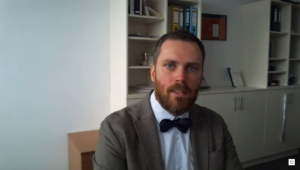
The workshop underscored the availability and importance of States Parties to use, along with national resources, all internationally available instruments and opportunities to support them in the ratification and implementation of the Amendment, particularly those provided by the IAEA. Some States, however, are frequently not aware of such assistance. To fill this gap, the workshop featured representatives from the IAEA, UNODC, Canada and the USA, to provide an overview of the wide range of assistance programmes and tools offered by their respective organisations and countries. Such assistance includes: capacity building programs; platforms for exchange of experience and expertise; legislative assistance; peer reviews; international nuclear security guidance documents; and physical protection equipment. Where possible, a multi-layered approach is applied to ensure that political, technical and legal challenges can be effectively addressed concurrently and contribute to the sustainability of the implementation outcome. Several experts also commended the positive effect of cooperation among various assistance providers, for example, between the IAEA and UNODC.
The IAEA, UNODC, Canada and the USA also provide considerable support for the universalisation of the Amendment through outreach activities to States not yet party to the agreement, including during regional and national workshops and side events at large international fora. Given similarities between the Amendment and the International Convention for the Suppression of Acts of Nuclear Terrorism, it is beneficial to implement both instruments conjointly and highlight their synergies when offering assistance or engaging in outreach events.
The 2022 Review Conference of Parties to the Amendment was the centrepiece of the discussion on the future of the Amendment. While workshop participants commended the preparatory work conducted so far, there are several outstanding issues, both organisational and substantive, that have yet to be resolved prior to the Conference. For example, there are still two options on how decisions regarding substance should be made: either by a two-thirds majority or based on consensus. It has already been agreed, however, that the outcome document should be adopted by consensus. Another outstanding organisational issue is the participation of international organisations and non-governmental organisations (NGOs) in the Conference. Their participation can help stimulate the discussion among States Parties. A potential solution is to circulate a list of invited organisations under a silent procedure. The format of NGOs’ participation at the Conference also needs to be established.
Among other pending issues is the need for States Parties to determine the topics and structure of Conference sessions, contents and composition of national statements, as well as how to fit the substantive agenda into five days. Equally important is to set the form and content of the outcome document, which ideally should capture main challenges, lessons learned, joint assessment of the Amendment adequacy, and decision on future review conferences.
States Parties should come well prepared to the Conference. According to one of the workshop speakers, the outcome and benefits of the Review Conference will be proportionate to what States “put into the shell prepared by the Preparatory Committee.” States Parties should go beyond crafting diplomatic statements and seize the opportunity to make the Conference aspirational: not only should it examine national experiences with the Amendment but also discuss the best way forward for nuclear security as a whole and bring new ideas to the table. For example, the Conference can explore the impact of new technologies on nuclear security, emphasise relevant assistance instruments, and highlight States Parties’ commitments under relevant IAEA INFCIRCs.
Workshop participants underlined the important role of the IAEA in providing practical advice and support to States Parties with regards to their preparations for the Conference. The important role of NGOs, which, for example, offer informal platforms for more detailed discussions ahead of 2022, was also highlighted.
The future of the Amendment is closely linked to its universalisation, and the Conference can play an important role in demonstrating that “the Amendment is not an exclusive club.” There is hope that postponing the Conference until next year will serve as an incentive for States to expedite the ratification process and eventually be able to participate fully in the Conference. The draft rules of procedure envisage the invitation of States that are not party to the Amendment to the Conference. In this regard, it would be beneficial to have an in‑person Conference and arrange a separate session on universalisation. Additionally, workshop participants emphasised the relevance of regional organisations as forums for discussion and promotion of universal adherence to the Amendment, such as the Organisation of American States.
The workshop was made possible thanks to the generous support of the Swiss Federal Department of Foreign Affairs.
Featured Image: Dean Calma / IAEA.
